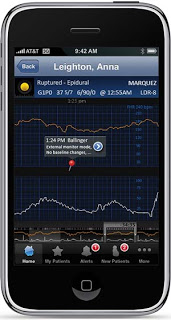Sometimes evangelists get carried away. That may be stating the obvious, obviously. But often we do not realize this when we listen to evangelists. You only need to look at the presenters at the November, 2009, FDA hearings on the Internet to see social media evangelists in full regalia (see “Industry Groups will Eat Consumer Advocates’ Lunch at FDA Social Media Public Hearing“).
Not that there’s anything wrong with evangelism per se. But sometimes pharma/healthcare social media evangelists get carried away. Today, for example, there was a discussion in the #hcsmeu Twitter group (see discussion topics here) about Web 2.0 changing the delivery of health care. The discussion soon morphed into declarations that social media improved health care.
This belief that Web 2.0 can improve health care was also the subtext of many presentations at the FDA hearings. I could see the FDA people scratching their heads because little actual evidence to support that idea was presented. Sure, there was evidence that consumers used the Internet to find health information. But there was no evidence that Web 2.0/social media tools actually improved health outcomes. If there is any evidence of this, I’d like to see it.
Let’s get back, however, to the delivery of health care rather than the improvement of health care. The two are not equivalent nor mutually exclusive. You can, after all, have efficient delivery of bad health care! In fact, the pharmaceutical industry argues that if it weren’t for them, social media would actually enhance the delivery of bad healthcare information (and by faulty logic extension, bad health outcomes).
The point I am making is that when we speak of the benefits of social media in the healthcare arena, we need to back up our beliefs with scientific evidence, especially if we are trying to make a point with the FDA.
Next week, I will be interviewing C. Peter Waegmann, Vice President of mHealth Initiative Inc., about the potential impact of moblie phone applications on the transformation of health care (see “How Will mHealth Change Healthcare?“). Mobile apps are in the same category as are Web 2.0 apps — an advanced electronic information delivery device. But Mobile is like Web 2.0 on steroids — your mobile device knows where you are, can take a picture of your bumps and bruises, listen to your heatbeat, and soon, maybe even measure your blood pressure! It’s definitely a contender for improving healthcare delivery, maybe even improving health outcomes.
But I am not the evangelist; that would be Peter, who is an international leader in health informatics with a special interest in electronic patient record systems, standards, networking, mHealth, and the creation of the national information infrastructure.
What’s Your Opinion About Branded Patient Support via Twitter?
This survey asks how effective Twitter can be in carrying out each of the following patient support activities/communications:
- Drug/device safety alerts (eg, drug recalls, medical device malfunctions, emerging safety issues)
- Prescription management, including pharmacy refill reminders
- Daily health tips from authoritative sources
- Publishing disease-specific tips
- Clinical trial awareness & recruitment
- Enhancing health-related support groups (e.g. buddy-systems for depression)
- Providing around-the-clock disease management
- Patient-sharing of health-related experiences
- Issuing dietary/lifestyle tips
- Delivering adherence and compliance messages
Please take 2 minutes to answer this survey about how effective Twitter can be in carrying patient support activities/communications. Take the survey here.
You will be able to see a summary of up-to-date de-identified results upon completion of the survey.
Results of this survey may be summarized in an issue of Pharma Marketing News.
Your comments are confidential (anonymous) unless you specifically provide your contact information at the end of the survey and allow us to attribute comments to you personally.









![6 Digital Tools at the Center of Healthcare Digitalization [INFOGRAPHIC]](http://ec2-54-175-84-28.compute-1.amazonaws.com/pharma-mkting.com/wp-content/uploads/2021/04/6DigitalTools_600px-100x70.jpg)




